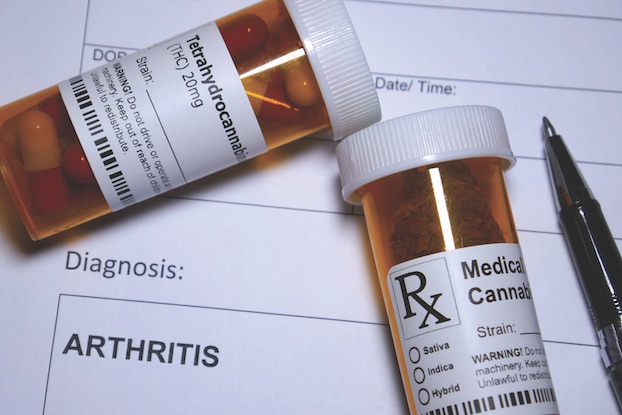Medical marijuana pharmacy permit denied
Published 10:01 am Thursday, April 27, 2023

- (Metro Creative Services)
Jennings Mayor Henry Guinn shut down a building permit request Wednesday for a temporary satellite marijuana pharmacy until issues can be resolved with the state on how sales tax revenues are handled.
Medicis, who has acquired property just off Interstate 10 at La. 97, recently submitted a building permit to the city to construct the pharmacy. The company also operates a pharmacy in Lake Charles.
Following a hearing before the Health Committee on Health and Welfare in Baton Rouge on Wednesday, Guinn informed the company that the building permit will be denied until further notice. At issue is the state’s handling of sales tax revenues generated by the sale of medical marijuana.
“I will continue to deny the building permit until we get more information on how it is going to happen,” Guinn said. “I think it is unraveling too fast and we need to have some more information before we issue a building permit.”
Currently, local governments cannot collect sales tax because the original bill creating the dispensaries did not mention the local sales tax collection.
Prescription drugs are currently taxable, although there is a push to make all prescription drugs tax exempt.
Guinn is the only mayor publicly opposing separate bills to expand dispensing of medical marijuana and medical marijuana pharmacies in the state. Guinn argues that local governments should receive financial gains from those expansions.
House Bill 460 by Rep. Robert “Bob” Owen, R-Slidell, relating to the dispensing of medical marijuana, passed Wednesday and now heads to the House floor for debate. House Bill 467 by Rep. Joseph Marino, I-Gretna, concerning marijuana pharmacies, was deferred back to committee to allow lawmakers more time to review the measure.
Currently the state is the only entity receiving revenues on transactions made between the growers and the dispensaries, he said.
“When these growers harvest their marijuana, or cannabis, the state taxes the transactions between the grower and the dispensary at 7 percent, so the state is making all this money on medical marijuana,” Guinn said.
However, the transaction between the pharmacy and consumer is tax exempt because it is a prescription drug, he said.
Louisiana State University, Southern University and University of Louisiana at Monroe are currently the only state-approved growers.
“I think the state’s angle of monopolizing it has the potential to create windfall profits for the state, but it doesn’t create anything for the city of Jennings or the municipalities that have to deal with the traffic and the demand and burden of regulating it inside the city limits,” Guinn said.
The state also picked five dispensers, or marijuana pharmacies, to be allocated in every Louisiana Department of Health Region. Region 5, which includes Southwest Louisiana, is serviced by Medicis.
Medicis now has enough prescriptions that they are can expand and open up a satellite facility which is being proposed for Jennings, Guinn said.
“Medicis is the only pharmacy in Southwest Louisiana that is allowed by law, but they are trying to expand the footprint by creating additional satellite pharmacies,” he said.
Only two have been permitted by the Department of Health and one of the two is Jennings. A second pharmacy is proposed for north Louisiana.
Under the current law, the city of Jennings, Jeff Davis Parish School Board, Jeff Davis Parish Sheriff’s Office or any other taxing entity, would not be allowed to tax local medical marijuana sales, he said.
“It’s a bit hypocritical that the state is taxing it at 7 percent, but the locals who are going to have to deal with the traffic, the lines, the security will receive nothing,” he said. “You are going to open up a satellite facility in the city of Jennings, which is very rural, and we can’t afford to police it, especially when we are not getting any sales taxes from it.”
The whole purpose of legalizing marijuana was to tax it, he said.
“That’s what Colorado did and they are making windfalls of profits because they are taxing marijuana,” he said. “The state of Louisiana created a system that appoints kingmakers so you basically have five companies that can sale marijuana with a prescription, then your local governments who have to police and monitor it, and deal with traffic, repairs and all the other stuff that comes with it, we don’t get anything off of it.”
Guinn said he is not against the benefits of marijuana, but is against the system the state created.
“I am against the fact that your local governments who have to bear the burden of hosting these things don’t get any sales taxes off of it,” he said. “I feel like they are trying to force it down our throats, so until some local mayors or police jury presidents band together to say enough is enough I don’t think we are going to get the legislators attention on this.”





